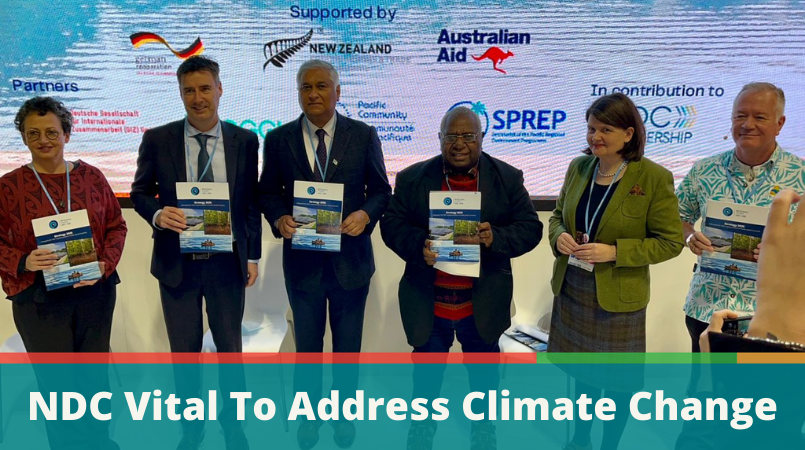
Papua New Guinea views its nationally determined contributions (NDC) as an important guideline to address the impacts of climate change.
Prime Minister’s Special Envoy to COP26, Wera Mori outlined this importance of NDCs while speaking at the High Level Event on the Regional Pacific NDC Hub’s Strategy 2030, at the COP26 Climate Summit, in Scotland on Wednesday, 3rd of November.
He stated that Central to the NDCs is the concept of national determination. These determinations are national climate plans highlighting climate actions, climate related targets, policies and measures governments aim to implement in response to climate change and as contribution to global climate action.
The event was hosted by GIZ – an international enterprise owned by the German Federal Government. It operates in various fields of economic development and employment promotion, governance and democracy, security, reconstruction, peace building and civil conflict transformation, food security, health and basic education, environmental protection, resource conservation and climate change mitigation.
“Climate Change is a faceless monster which has no boundaries. Unfortunately, for us in the Pacific region, we are made to pay for the problems we have had no part in creating.
“In the Pacific Region, we may be seen as small island nations or just a ‘dot’ on the global map. However, what the global community doesn’t realize is that the Pacific Island nations and its territorial waters cover 25 per cent of ‘Mother Earth’.
“It is our oceans that we often depend on, are now facing the brunt of climate change. The temperatures are rising. In the first 20 meters of our Pacific waters’ surface, these temperatures have reached four degrees centigrade,” Minister Mori said.
He said how do we compensate the small island nations, which cover millions of square kilometers of sea area?
“This is a tough challenge for us. Because of the rising temperatures, we have tuna migrating away from our waters. We have other fish also migrating from our waters.
“So, this is the point where we need to establish, under our respective nationally determined contributions, more focus on adaptation and mitigation. We must see how best we can provide the different sources of livelihood sustainability for those island nations, including Papua New Guinea.”
He said Papua New Guinea has further made concerted efforts, with the assistance of GIZ, completing all policies to ensure that we walk the part of our respective objectives.
“Back in PNG, we realize that we host 30 per cent of global tropical rainforest. Hence, we have made a bold decision to ban round-logging by 2025 and by 2030 we aim to ban logging, completely.
“But at the same time, we are undertaking other active programs like tree-planting, among others.”
Minister Mori said the challenges faced by small island nations of the Pacific are real. So, all must act now and ‘walk the talk’ so our people on the islands aren’t relocated and can continue to live their lives, where they belong.
